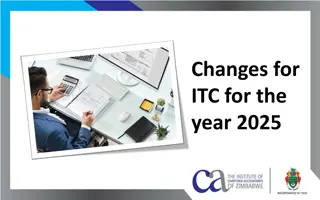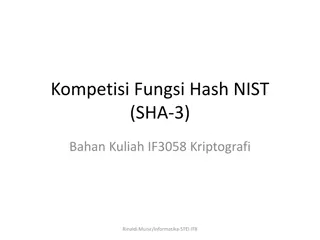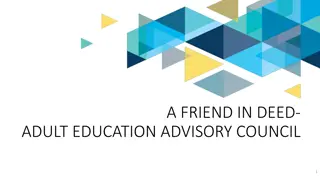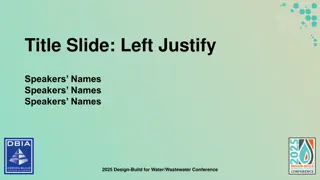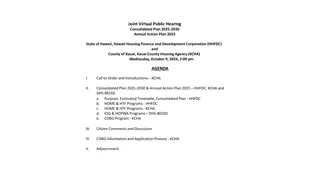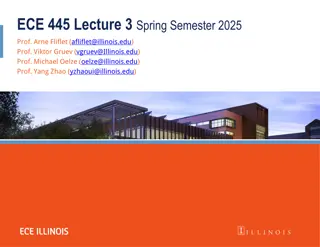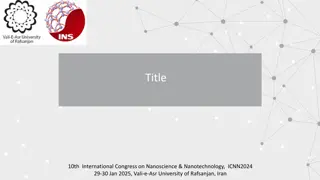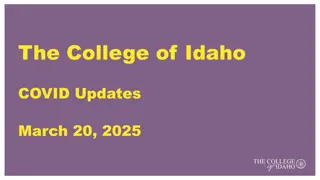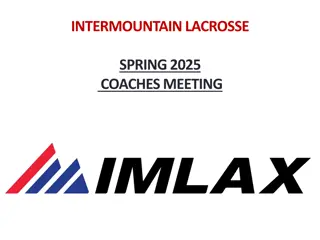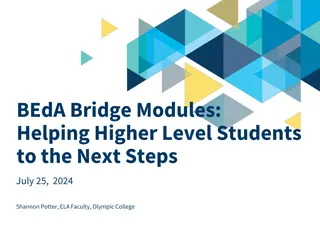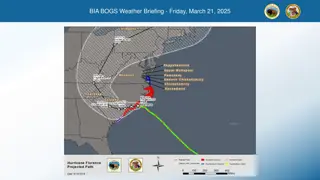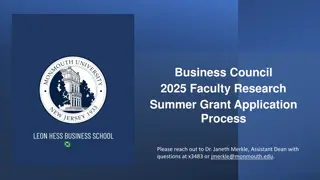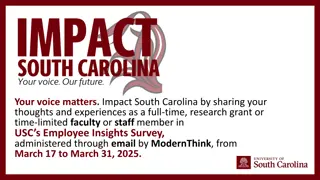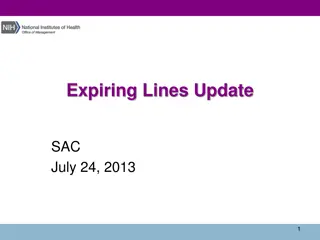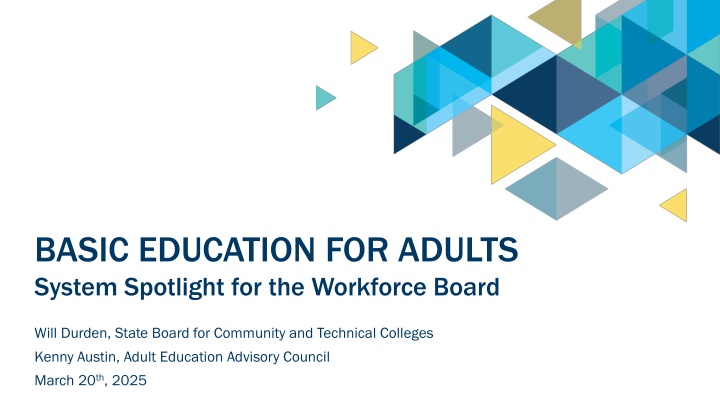
Basic Education for Adults: Addressing Workforce Challenges in Washington State
Explore the Basic Education for Adults (BEDA) program in Washington State, aiming to provide essential skills and education services to bridge the workforce gap. Discover how BEDA helps individuals transition to postsecondary education, obtain employment, and enhance their overall well-being. Learn about funding, administration, and state investments driving this initiative.
Download Presentation

Please find below an Image/Link to download the presentation.
The content on the website is provided AS IS for your information and personal use only. It may not be sold, licensed, or shared on other websites without obtaining consent from the author. If you encounter any issues during the download, it is possible that the publisher has removed the file from their server.
You are allowed to download the files provided on this website for personal or commercial use, subject to the condition that they are used lawfully. All files are the property of their respective owners.
The content on the website is provided AS IS for your information and personal use only. It may not be sold, licensed, or shared on other websites without obtaining consent from the author.
E N D
Presentation Transcript
BASIC EDUCATION FOR ADULTS System Spotlight for the Workforce Board Will Durden, State Board for Community and Technical Colleges Kenny Austin, Adult Education Advisory Council March 20th, 2025
BASIC EDUCATION FOR ADULTS - MOTIVATION To be sure, the people who are the focus of current college initiatives are going to school to improve their economic prospects. But people also go back to school to feel their minds working and learn new things, to help their kids, to feel competent, to remedy a poor education, to redefine who they are, to start over. Mike Rose, Back To School 2
Washington state job growth from 2023 to 2032 projected at 12.8% THE CHALLENGE Projected shortfall of nearly 600,000 credentialed workers over the decade An oversupply of uncredentialed workers (high school credential or less) Estimated 498,000 Washington adults hold less than a high school diploma or equivalent Sources: Washington Roundtable, US Census Data 3
ONE SOLUTION: BASIC EDUCATION FOR ADULTS (BEDA) BEdA programs offer academic instruction and education services below the postsecondary level that increase an individual s ability to: Read, write, speak English, and perform math for the attainment of a secondary school diploma or equivalent Transition to postsecondary education and training; and Obtain employment Photo courtesy of Seattle Central College 4
BEDA FUNDING AND ADMINISTRATION Seed funding provided by federal government (~$14m) Corrections BEdA programs funded by state Department of Corrections Administered by the State Board for Community and Technical Colleges Part of Washington state s Workforce Development System 5
STATE & LOCAL INVESTMENTS ~$3.2m supports new arrivals primarily from Afghanistan and Ukraine $750,000 supports Washington state s nationally recognized Integrated Basic Education and Skills Training program Colleges heavily subsidize BEdA programs with local funds 6
BEDA STUDENTS 29% White 28% Hispanic or Latino 17% More than One Race 15% Asian 10% Black or African American <1% American Indian, Alaskan Native, Native Hawaiian, or Other Pacific Islander 19% 19-24 58% 25-44 14% 45-54 36,459 individuals served Nearly 1 in 3 adults who come to BEdA to learn English hold a postsecondary or professional degree from another country 63% female 37% male 7
BEDA PROGRAM MODELS High School+ (HS+) Students who complete High School+ receive a Washington state high school diploma from their community or technical college. Students can demonstrate competency through prior transcripts and other life experience. Integrated Basic Education and Skills Training (I-BEST) Places upper-level BEdA students directly into college certificate and degree programs. Nationally recognized with a Tier 1 rating by the What Works Clearinghouse 8
BEDA PERFORMANCE (2022-23) Performance Indicator Performance Indicator Employment (2nd Quarter) Employment (4th Quarter) Median Earnings Credential Attainment Rate Measurable Skill Gains Target Target 30.1% 30.1% $4,975 44% 40% Actual Actual 35.39% 38.73% $6,075 56.71% 41.59% Target Met Target Met Yes Yes Yes Yes Yes 9
CREDENTIAL ATTAINMENT FEDERALLY FUNDED Credential Credential Diploma GED 2016 2016- -17 4,404 1,107 17 2017 2017- -18 4,584 1,067 18 2018 2018- -19 4,435 774 19 2019 2019- -20 4,183 438 20 2020 2020- -21 4,117 274 21 2021 2021- -22 3,505 264 22 2022 2022- -23 3,365 292 23 10
CORRECTIONS EDUCATION CREDENTIAL ATTAINMENT Award Type Award Type F22 F22 F23 F23 F24 F24 High School Equivalency (GED) 181 219 249 High School Diploma (HS+) 158 351 458 11
ADULT EDUCATION ADVISORY COUNCIL The Adult Education Advisory Council was created by statute in 1991 (RCW 28B.50.254) The advisory council shall advise the state board for community and technical colleges and the workforce training and education coordinating board concerning adult basic education and literacy programs. The advisory council s actions shall be consistent with the state comprehensive plan for workforce training and education prepared by the workforce board. 12
COUNCIL MEMBERSHIP Cindy Guertin- Anderson, Department of Commerce Kenny Austin, General Public Position (Chair) Brice Montgomery, Department of Social and Health Services Ricardo Chavez, Adult Education Teacher Jennifer Barber, Council for Basic Skills Amy Diehr, Private Literacy Organization Mandy Paradise, Office of Superintendent of Public Instruction Aaron Parrott, SkillSource Workforce Development Council Anne Goranson, Employment Security Department Kelli Graham, Community Based Organization Adrienne Jones, Labor Representative Eleni Papadakis, Workforce Board Chris Bailey, State Board for Community and Technical Colleges Lionel Candido- Flores, Council for Basic Skills Lucretia Robertson, Library Program Lin Zhou, Higher Education Agency 13
AEAC FOCUS ON BEDA SUBPOPULATIONS Four committees focused on: 1. Students seeking high school credential 2. Justice-impacted students in corrections education programs 3. College-educated English learners 4. Non-college educated English learners 14
THE AEAC WANTS TO HEAR FROM YOU! How can the Adult Education Advisory Council best advise the Workforce Board on matters related to adult basic education? Which aspects of the state plan are most salient for the work of the AEAC? 15
QUESTIONS AND FEEDBACK Contact information Will Durden | Director, Basic Education for Adults, SBCTC wdurden@sbctc.edu Kenny Austin| Chair, Adult Education Advisory Council kennyryanaustin@gmail.com CC BY 4.0, except where otherwise noted.

